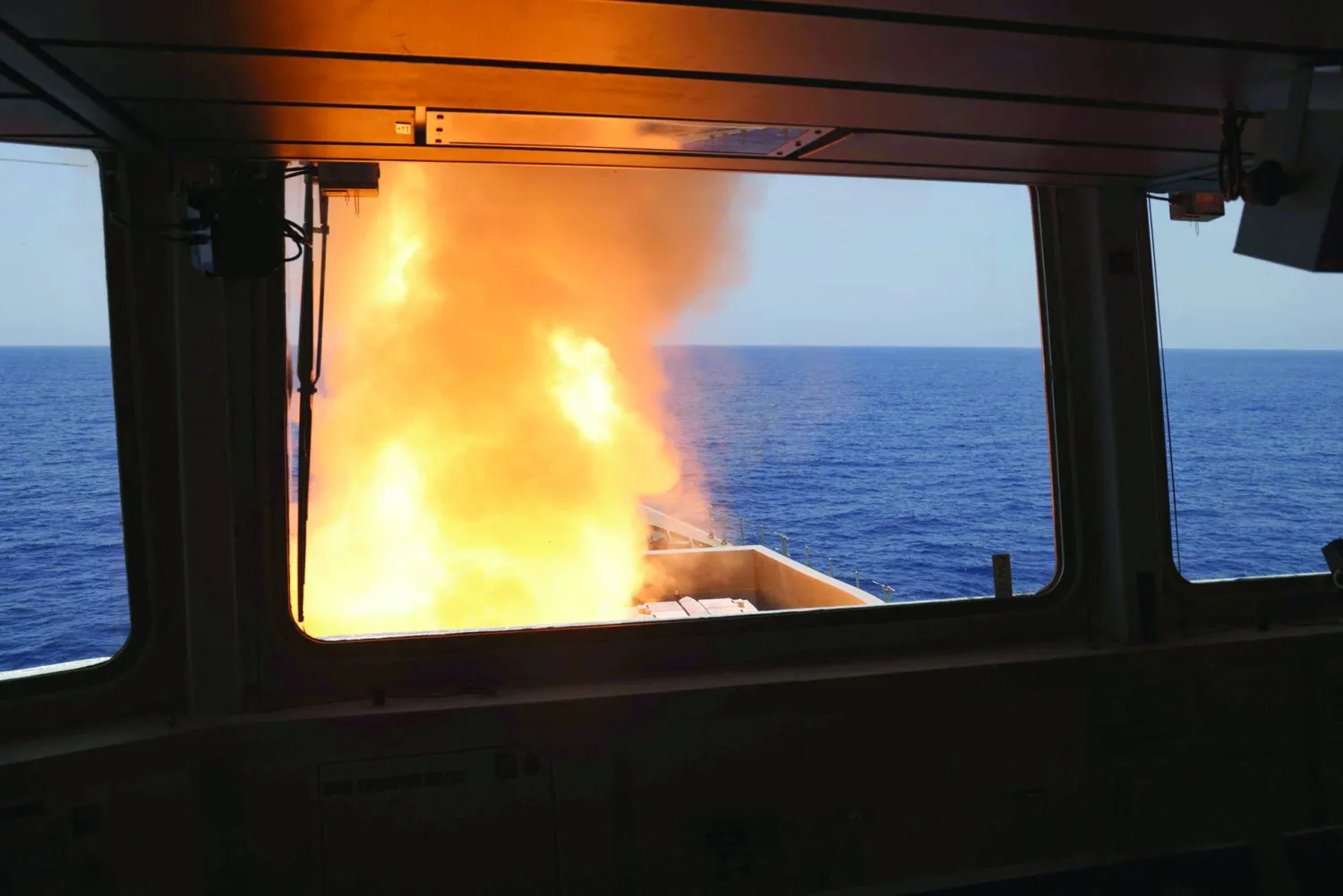Yemen's Houthi group on Friday claimed to have shot down an American drone, hours after footage circulated online of what appeared to be the wreckage of an MQ-9 Reaper drone. Early Saturday, a vessel also came under attack in the Red Sea.
The two incidents likely represent just the latest attacks by the Houthis as they press their campaign over the Israel-Hamas war in the Gaza Strip.
Houthi military spokesman Brig. Gen. Yahya Saree claimed the group shot down the Reaper on Thursday with a surface-to-air missile. He described the drone as “carrying out hostile actions" in Yemen's Marib province.
The Houthis later released footage they claimed showed the surface-to-air-missile being launched at night, along with night-vision footage of the missile hitting the drone. A man, whose voice had been digitally altered to apparently prevent identification, chanted the Houthi slogan: "God is the greatest; death to America; death to Israel; curse the Jews; victory to Islam.”
Online video showed wreckage resembling the pieces of the Reaper on the ground, as well as footage of that wreckage on fire.
The US military did not respond to a request for comment from The Associated Press over the Houthi claim. While the group made claims about attacks that turned out later not to be true, they have a history of shooting down US drones and have been armed by their main benefactor, Iran, with weapons capable of high-altitude attack.
Since the Houthis seized the country’s north and its capital, Sanaa, in 2014, the US military has previously lost at least five drones to the militant group.
Reapers, which cost around $30 million apiece, can fly at altitudes up to 50,000 feet and have an endurance of up to 24 hours before needing to land.
The drone shootdown comes as the Houthis launch attacks on shipping in the Red Sea and Gulf of Aden, demanding Israel ends the war in Gaza, which has killed more than 34,000 Palestinians there. The war began after Hamas-led militants attacked Israel on Oct. 7, killing 1,200 people and taking some 250 others hostage.
The Houthis have launched more than 50 attacks on shipping, seized one vessel and sunk another since November, according to the US Maritime Administration.
Early Saturday, the British military's United Kingdom Maritime Trade Operations center said a ship came under attack off the coast of Yemen's port city of Hodeida.
The captain “has confirmed sustaining slight damage after being struck by an unknown object on his port quarter,” the UKMTO said. “The vessel and crew are safe and continuing to its next port of call.”
The Houthis did not immediately acknowledge the attack, though it typically takes them hours to issue a claim.
Houthi attacks have dropped in recent weeks as the group has been targeted by a US-led airstrike campaign in Yemen. Shipping through the Red Sea and Gulf of Aden still remains low because of the threat, however.
Yemen's Houthis Claim Shooting Down another US MQ-9 Reaper Drone as Footage Shows Wreckage

In this photo provided by the Ministry of Defense (MoD), a Sea Viper missile is launched from HMS Diamond to shoot down a missile fired by the Iranian-backed Houthis from Yemen, Wednesday, April 24, 2024. Yemen’s Houthi rebels fired a large barrage of drones and missiles targeting shipping in the Red Sea Wednesday. (LPhot Chris Sellars/MoD Crown copyright via AP)

Yemen's Houthis Claim Shooting Down another US MQ-9 Reaper Drone as Footage Shows Wreckage

In this photo provided by the Ministry of Defense (MoD), a Sea Viper missile is launched from HMS Diamond to shoot down a missile fired by the Iranian-backed Houthis from Yemen, Wednesday, April 24, 2024. Yemen’s Houthi rebels fired a large barrage of drones and missiles targeting shipping in the Red Sea Wednesday. (LPhot Chris Sellars/MoD Crown copyright via AP)
لم تشترك بعد
انشئ حساباً خاصاً بك لتحصل على أخبار مخصصة لك ولتتمتع بخاصية حفظ المقالات وتتلقى نشراتنا البريدية المتنوعة







